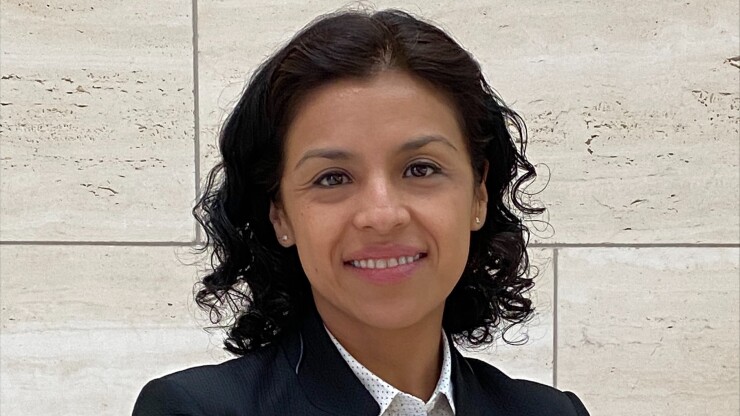Up to one out of every 50 ACH transfers fail, an issue that Mastercard contends can be addressed through a mix of new data-sharing techniques and machine learning.
"With ACH payments there's a latency in how they are processed; it can take two to five days," said Silvana Hernandez, senior vice president of digital payments at Mastercard in New York. "Things can happen, including a decline because of a balance."
The card network is using technology from Finicity, an open banking provider
One new Mastercard product, called Payment Success Indicator, relies on bank account information provided by the consumer on an opt-in basis. The product was developed through open banking, or a process for sharing bank account information with third parties.
A merchant, bank, digital wallet or payment service provider uses this bank account information to access a consumer's balance and historial behavioral risk pattern for each transaction. That informs the Payment Routing Optimizer, which recommends the right day and payment rail (such as same-day ACH or next-day ACH) that strikes a balance for cost, speed and risk.

Mastercard's machine learning is designed to improve the behavioral analysis and recommendations over time so the Success Indicator and Routing Optimizer become more accurate.
"AI allows us to predict if a payment will be successful when it's settled. A merchant may have been planning to run a transaction through ACH, but could find it better to run through same day ACH," Hernandez said.
Mastercard is attacking the portion of ACH payments that are returned to consumers — estimated to be 2%, according to the
"There are
Mastercard's digital payment products will be widely available later this year, and are being deployed early for rental payments, which Hernandez said heavily use ACH transactions. Mastercard plans to focus on education, health care and insurance in future deployments.
Finicity has been an open-banking catalyst for Mastercard. It is also powering
"Finicity removes the friction of setting up bank account details," Hernandez said. "It's just a couple of clicks for a consumer to link an account."
The Finicity-powered deployments are part of a plan at Mastercard to add new business products that build on top of payment acceptance or are
"Digital consumers are used to having a mobile experience, which highlights the complexity required to accept payments," Hernandez said, adding it's Mastercard's plan to provide as many payment options as possible.
And other payment companies are deploying open banking, including the Swedish fintech Klarna, which is known for BNPL lending but also offers payment processing.
Mastercard's moves provide another way to tap into a trend that uses expedited transaction processing as a way to combat fund shortages. A growing
These growing digital and faster-processing options will create more transaction rails, and a way for the card brands to use their existing networks to streamline the shopping and payment experience, according to Marco Salazar, director of payments for Javelin Strategy & Research in Chicago.
"For the card companies it is an effort to diversify the capabilities and ensure the networks and their services are future proof," Salazar said.
As open banking becomes more widespread, payment options will become more fragmented. That provides an opportunity for Visa and Mastercard to provide services that can address the increase in payment choices, according to Salazar.
"This pushes them away from a consumer brand and more into a business-to-business world," Salazar said.






